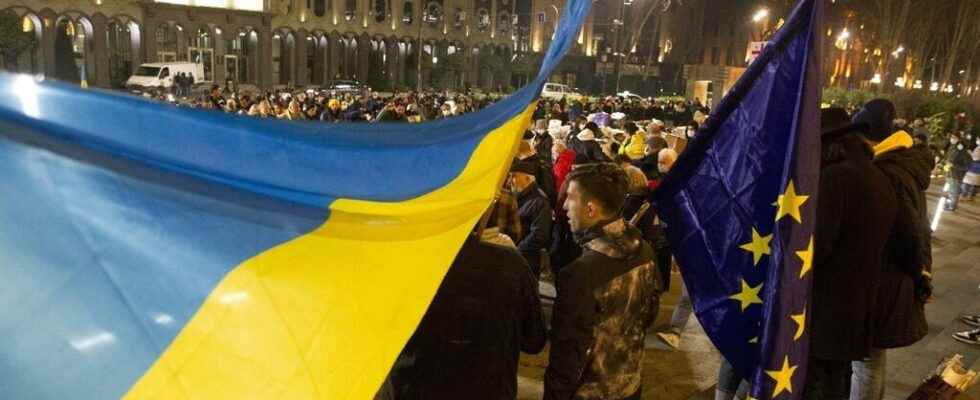Against a backdrop of concerns about the Russian invasion of Ukraine, Georgia and Moldova submitted their application to join the European Union on Thursday 3 March.
Throughout the post-Soviet space, the war in Ukraine is creating a stir and causing certain countries to fear that they will be Moscow’s next target to force them to return to its yoke. This is particularly the case in Georgia, a small republic in the South Caucasus of 3.7 million inhabitants which was itself invaded by the Russian army in 2008, for reasons almost identical to Ukraine today. .
Every evening, a growing crowd gathers in front of the Parliament in Tbilisi, the capital, to support the “Ukrainian brothers”, reports our correspondent, Regis Gente. This confirms in the street what the polls have been saying for twenty years: three-quarters of Georgians support rapprochement with Europe and NATO.
The government, secretly led by the oligarch Bidzina Ivanichvili, is embarrassed to say the least. Perhaps out of fear of reprisals from Moscow. For several days, he did his best to prevent the departure of more than 150 Georgian volunteers, ready to go and fight in Ukraine. But under pressure from public opinion and the signature of petitions by tens of thousands of Georgians, Prime Minister Irakli Garbibachvili on Thursday initialed a letter similar to the one signed the day before by Ukrainian President Volodymyr Zelensky, officially asking the European Union to accept it as a member.
A long process
Moldova followed suit. ” Today we sign the application for EU membership “, declared in front of the press Maia Sandu, elected in 2020 on a pro-Western program. ” Some decisions need to be made quickly and purposefully “. The country had signed an association agreement with Brussels in 2014, which does not, however, offer any guarantee of subsequent integration.
Because integration into the EU is a long-term process to bring the legislation of the candidate country closer to European law. It requires complex negotiations on many subjects and criteria that are difficult to meet for a country at war, such as political stability and a viable market economy. It also requires the unanimous endorsement of the 27 member countries.
Moldova, a country of some 2.6 million people, is among the poorest in all of Europe and suffers from massive emigration due to endemic unemployment. Since the early 1990s, nearly a third of its population has left, one of the highest population declines in the world.
(And with AFP)
